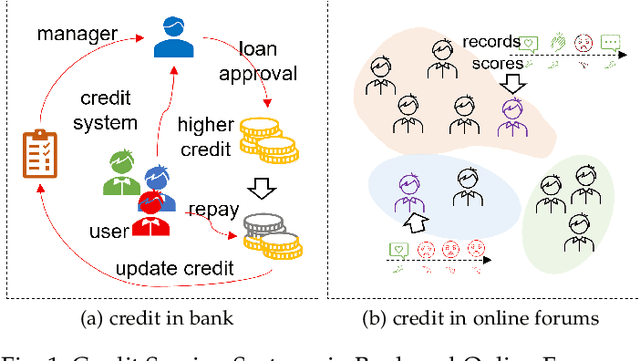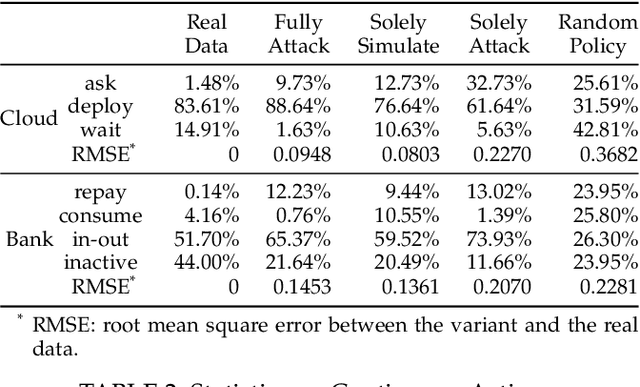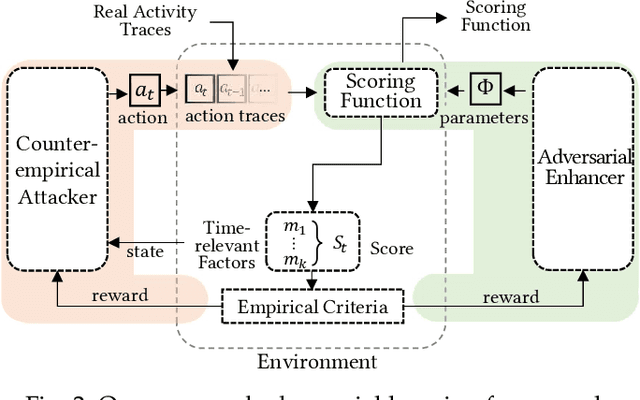Counter-Empirical Attacking based on Adversarial Reinforcement Learning for Time-Relevant Scoring System
Paper and Code
Nov 09, 2023



Scoring systems are commonly seen for platforms in the era of big data. From credit scoring systems in financial services to membership scores in E-commerce shopping platforms, platform managers use such systems to guide users towards the encouraged activity pattern, and manage resources more effectively and more efficiently thereby. To establish such scoring systems, several "empirical criteria" are firstly determined, followed by dedicated top-down design for each factor of the score, which usually requires enormous effort to adjust and tune the scoring function in the new application scenario. What's worse, many fresh projects usually have no ground-truth or any experience to evaluate a reasonable scoring system, making the designing even harder. To reduce the effort of manual adjustment of the scoring function in every new scoring system, we innovatively study the scoring system from the preset empirical criteria without any ground truth, and propose a novel framework to improve the system from scratch. In this paper, we propose a "counter-empirical attacking" mechanism that can generate "attacking" behavior traces and try to break the empirical rules of the scoring system. Then an adversarial "enhancer" is applied to evaluate the scoring system and find the improvement strategy. By training the adversarial learning problem, a proper scoring function can be learned to be robust to the attacking activity traces that are trying to violate the empirical criteria. Extensive experiments have been conducted on two scoring systems including a shared computing resource platform and a financial credit system. The experimental results have validated the effectiveness of our proposed framework.
 Add to Chrome
Add to Chrome Add to Firefox
Add to Firefox Add to Edge
Add to Edge